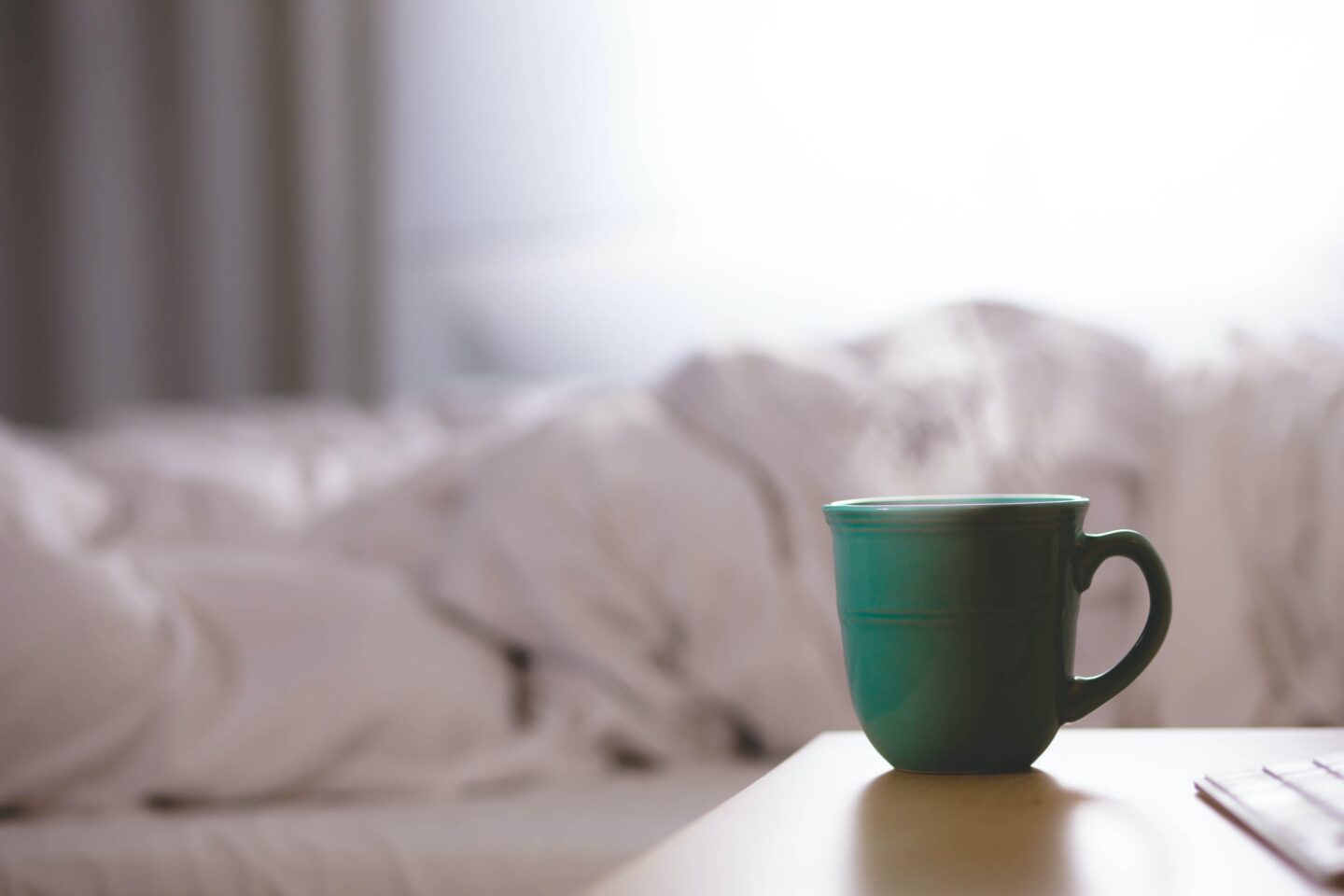One of the most important things that you can do for your health and well-being is to sleep.
That’s easier said than done though when you are a mum. Sometimes it’s because of disturbed sleep from little ones waking us up. Sometimes it’s from worrying about things that keeps us up.
Sometimes it’s a case that we just don’t have a very good sleep routine.
I’m definitely guilty of staying up a bit too late so that I get a bit of child-free time in the evenings, but I also know that I feel a million times better and much more able to cope with motherhood when I have had a good night sleep.
We are a bit limited in how much we can change our little ones waking up (other than promoting a healthy sleep routine for them too!) but the one thing that we can control is having a strong sleep routine that gives us the best chance of having a good night sleep.

What are the health benefits of sleeping?
So other than making us feel good (and a bit less grumpy!) what does sleep actually do?
- When we sleep it allows our bodies to repair tissues and do any house-keeping that they need to do.
- It allows us to heal if we are not feeling our best.
- Regulates our hormones
- Regulates the hormones that control hunger levels and metabolism
- Creates new pathways to help us learn and remember new things
- Helps us manage stress.
- It helps prevent illness
- Sleep helps us to slow down the ageing process.
From this list, it’s easy to see why sleep is important, and why when our sleep is reduced we don’t feel our best.
Not getting enough sleep can lead to our immune system not working at it’s optimum, weight gain, increases our risk of certain diseases, increase stress levels as well as make us irritable and grumpy, make us feel less able to cope with daily stresses (and bigger stresses) and its harder to problem solve.

So what can we do?
When it comes to sleep, it’s both the quality and the quantity that matter.
While quantity can be a bit of an issue as a mum, quality is something that we can improve on.
The best way to do this is to get a good sleep routine in place and stick to it.
It’s going to be a bit hard and first to stick to it, but once you are in a good routine and you can FEEL the difference, it makes it so much easier to stick too.
Remember, when it comes to sleep (like with anything else with our health) the aim is consistency – not perfection. It’s unlikely you are going to be perfect with your sleep routine every night, so just aim for good enough.
How to create a sleep routine.
Set a bedtime and a wake up time.
We need 7-9 hours sleep. Where you fall in that range is going to be unique to you. Some people need more sleep, some people need less sleep.
Work out a realistic time for going to bed that you will be able to stick to (most of the time) and then stick to it. Set an alarm to remind you at the beginning if it makes it easier. Then work out a time to wake up and set an alarm for then too.
Studies have shown that we sleep better when we have consistent sleep and wake up times. Unfortunately lying in on the weekend isn’t helpful for us, and can in fact make us feel worse – so having a realistic sleep schedule is important.
There’s no point saying you will go to bed at 9pm, when you know your favourite tv show comes on at 9.30pm and there is no way you are going to miss it.
Make it realistic.
Make a wind-down routine that you love.
Nobody can go from working to sleeping just like that.
We need time for our brains to slow down and get into the relaxation zone.
Ideally this needs to be at least half an hour before you go to sleep, amazing if you can do it for longer than this.
This may be switching off devices (ideally at least an hour before bed), taking a warm bath or shower, taking some time for you to properly cleanse your face then reading a book or listening, write in a journal or maybe listen to some calming music or whatever it is that makes you feel relaxed and a bit sleepy.
By the time you get into bed, you will be falling asleep no problem!

Write it down.
It’s very difficult to fall asleep and get a good night sleep if your mind is racing a million miles an hour with problems you are worrying about or things you need to remember or do.
Find a notebook and keep it by the side of your bed, then before bed write any thoughts you have into it and you can then forget about them until the morning.
Limit blue light before bed.
I think we have all heard this one.
Blue light (from screens) has an affect on our circadian rhythm which makes it more difficult for us to go to sleep.
Most devices now have a night-mode setting which limits blue light exposure – it’s not as good as getting rid of blue light but it is better than doing nothing. You can also get blue light glasses.
In an ideal world, screens would be turned off 1.5-2 hours before sleep.
Exercise daily.
Moving daily, as well as being good for our health, helps us have a good night sleep.
Studies have found it to have a good effect on sleep quality, and exercise helps reduce stress which in turn helps you have a good night sleep – so it’s kind of win-win!
Extra bonus points if you…
Get outdoors.
There are so many health benefits for being outside.
The most important being vitamin D, and we should be spending at least 30 minutes outdoors everyday to allow our bodies to absorb the vitamin D they need from the sun (in the UK we should be taking a supplement over the winter season).

Limit your caffeine.
Caffeine affects people differently, but as a general rule, caffeine should be stopped after 3pm so it doesn’t affect our sleep. If you find you are sensitive to caffeine, it should be earlier.
Make your bedroom a sleep haven.
Our environment makes such a difference to our mental health.
For sleep, we need darkness – so avoid flashing, bright lights in the bedroom, and turn off electronics at the plugs to avoid any annoying little lights (they affect us more than we realise!) Keep your phone out of the bedroom if you can!
Keep your bedroom nice and cool, it helps to promote sleep and sleep quality.
Your bedroom should be a calming, restful place. Find a different area of your home for working. Your bedroom should be mainly for two things – and work is not one of them!
Do you sleep well? What gets in the way of your sleep? Let me know in the comments!
Beth x
